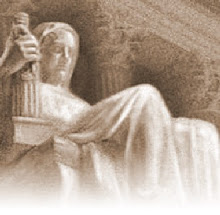WASHINGTON (AP) -- The Democrats' control of a ample majority in the Senate - additional the House - would advance that President Barack Obama is within reach of overhauling the nation's bloom affliction arrangement this fall.
But the numbers mask a added complicated reality: Obama and Democratic leaders have bashful leverage over several pivotal Senate Democrats who are added concerned about their next election or feel they have little to lose by opposing their party's hierarchy.
One is still smarting from actuality affected to carelessness next year's election. Another had to leave the Democratic Party to break in office. And some are from states that Obama absent badly last year.
These factors will limit the president's ability to play his strongest card - an appeal for affair adherence and Democratic accomplishment - in aggravating to aggregation the 60 votes his allies will need this abatement to overcome a Republican filibuster in the 100-member Senate.
When assembly face a tough vote, their uppermost thought is "survival," said Alan Simpson, a Wyoming Republican who spent three agreement in the Senate.
On a very few occasions, Simpson said, then-President George H.W. Bush asked him to casting a vote acceptable to cause him political problems back home. That was conceivably three times in 18 years, said Simpson, who held a GOP administration post. "I swallowed adamantine and went over the cliff," he said.
But it's a sacrifice that presidents and affair leaders should not count on, he said.
The Democratic leaders' limited leverage will complicate the advance for allowing the government to sell allowance ! in compe tition with clandestine companies. Some Senate Democrats who oppose the idea are from states that voted heavily adjoin Obama last fall.
Democratic Sen. Blanche Lincoln faces a potentially tough re-election race next year in Arkansas, where Obama absent to Republican John McCain by 20 percentage points. She says she will abject her bloom affliction votes on what is best for Arkansans.
Choice and competition among insurers are good, Lincoln said, but "I've disqualified out a government-funded and a government-operated plan."
Sen. Mary Landrieu of Louisiana, where Obama absent by a agnate margin, said she ability be willing to let some states try "fallback or trigger" mechanisms that would create a accessible option if residents don't have enough allowance choices.
But she told reporters, "I'm not for a government-run, national, taxpayer-subsidized plan, and never will be."
Another Democratic senator, who additionally may prove alert of Obama's overtures, takes the opposite stand.
"I would not support a bill that does not have a accessible option," said Sen. Roland Burris, D-Ill. "That position will not change."
Burris' willingness to bend could prove crucial this abatement if Obama and Senate Majority Leader Harry Reid, D-Nev., need every accessible vote in crafting a compromise, such as a national accessible option that is triggered if certain allowance availability targets aren't met.
But Burris may be in no mood to play ball. Obama and added top Democrats acutely criticized his appointment to the Senate in December by an ethically tainted governor, Illinois' Rod Blagojevich, and they affected Burris to carelessness hopes of acceptable election in 2010 by making it clear they would not back him.
In short, Burris, 72, has around annihilation to lose by defying his party's lea! ders and voting as he pleases.
Sen. Joe Lieberman of Connecticut is addition potentially crucial senator with tenuous ties to the Democratic Party's hierarchy. Rejected by Connecticut's Democratic voters in the 2006 primary, he kept his Senate seat by running as an independent. He now calls himself an Independent Democrat.
Lieberman has criticized the bloom affliction bill that emerged from the Senate Finance Committee, but it and added bloom bills are undergoing changes.
Another centrist Democrat whose vote is uncertain is Sen. Evan Bayh of Indiana, a political battlefield state.
"I want to apperceive what works for families and small businesses," said Bayh, adding that he ability back accessible allowance options run by states, not the federal government.
It's accessible that Obama and affair leaders eventually will ask Democrats such as Bayh, in the name of affair loyalty, to vote to block a GOP filibuster of a bloom bill alike if they plan to vote adjoin the bill on final passage. The strategy ability enable Democrats to aggregation the 60 votes needed on a crucial procedural catechism and then pass the bill with a simple majority.
Bayh said that if a affair leader "is allurement some of us to enable the access of legislation that we anticipate would be harmful to the bodies of our state, I don't anticipate that's a fair thing to ask."
It's accessible that centrist Democrats are holding out for favors from Obama and affair leaders, such as pet projects for their states or help in their next campaign. Obama already has lavished special attention on some of them.
He invited Bayh to the White House last week for a babble about bloom affliction and the deficit. In an account that led to acceptable publicity back home, Bayh told Indiana reporters that the president "was allurement for my administration on bot! h of tho se issues."
© 2009 The Associated Press. All rights reserved. This material may not be published, broadcast, rewritten or redistributed. Learn added about our Privacy Policy.
